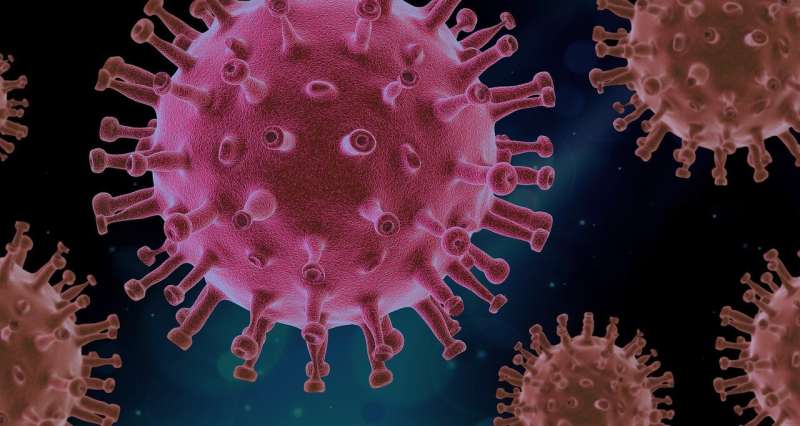Pfizer COVID-19 vaccine protective against SARS-CoV-2 variants

The Pfizer COVID-19 vaccine is protective against several SARS-CoV-2 variants that have emerged, according to new research presented in the journal mBio, an open-access journal of the American Society for Microbiology. While this is good news, the study also found that the only approved monoclonal antibody therapy for SARS-CoV-2 might be less effective against SARS-CoV-2 variants in laboratory experiments.
“The vaccines provide very strong protection against the earlier forms of the virus as well as the newer variants. This is an important point because I have heard people say that they don’t think there is a reason to get vaccinated, because the vaccine isn’t going to work against the variants, but that is not true—the vaccine will work against the variants,” said Nathaniel “Ned” Landau, Ph.D., professor in the Department of Microbiology at the NYU Grossman School of Medicine, in New York City.
To conduct their research, Dr. Landau and colleagues in the NYU Department of Microbiology and NYU Langone Vaccine Center created a panel of pseudotype viruses that combined the HIV virus and SARS-CoV-2 spike protein. Pseudotype viruses are replication-defective viral particles formed with a structural and enzymatic core from one virus and the envelope glycoprotein of another, that have been proven to be useful as research tools with little associated risk. “The SARS-CoV-2 spike protein is important, because it is the only structure on the virus that is exposed to the outside. The spike protein is what sticks out from the virus; it is what the immune system recognizes and what allows the virus to stick onto target cells,” said Dr. Landau.
There are 2 reasons the researchers chose HIV to create their chimeric viruses. First, HIV is not particular about incorporating the HIV spike protein; it will take most any virus spike protein. Second, the HIV virus has been engineered to carry 2 reporter genes that allow researchers to study virus entry, antibody binding, and antibody neutralization. When the virus infects a cell, the cell turns green and produces luciferase, the enzyme that makes fireflies light up at night. This provides a quick and easy way to count how many cells have been infected. “The spike protein-pseudotyped lentiviruses are extremely useful experimental tools. They were developed in the course of HIV research. They are less biohazardous and easier to work with in the lab,” said Dr. Landau.
The researchers created a panel of pseudotype viruses using the spike proteins from 6 different variants of SARS-CoV-2: the B.1.1.7 lineage variant identified in the United Kingdom, the B.1.351 lineage variant identified in South Africa, the B.1.1.248 lineage variant identified in Brazil, the COH.20G/677H lineage variant identified in Columbus Ohio, the 20A.EUs variant identified in Spain and later found elsewhere in Europe, and the Mink cluster 5 spike proteins located in minks in Denmark. They then mixed these pseudotype viruses with serum from either people who had received the Pfizer SARS CoV-2 vaccine or people who had already had COVID-19.
The researchers found that convalescent sera neutralize pseudotyped viruses with the 6 variants with only a small loss in titer. They also found that the Pfizer BNT162b2 vaccination worked just as well against the majority of variants as the earlier virus, but the vaccine neutralized the South African variant and the Brazil variant with a 3-fold decrease in titer, an effect attributable to the mutation E484K. Dr. Landau said that people should not be concerned about these results, however.
“Our interpretation of the results is that the vaccine antibodies are very powerful, and even if you lose 3-fold of the titer, there is still plenty of antibody there to neutralize the virus. We believe the findings demonstrate that the vaccines will remain protective against the variants that we tested,” said Dr. Landau. “While it’s not reported in this paper, we have done the same experiments with the Moderna vaccine and got similar results.”
In another experiment, the researchers tested Regeneron Pharmaceuticals REGN-COV2, a 2 recombinant monoclonal antibody cocktail consisting of casirivamab and imdevimab, that has been effective at decreasing symptoms of individuals with COVID-19 and keeping them out of the intensive care unit. The researchers found that casirivamab had lost some of its neutralizing activity against the South African and Brazilian variants and the cocktail was 9- to 15-fold decreased in titer.
Source: Read Full Article
